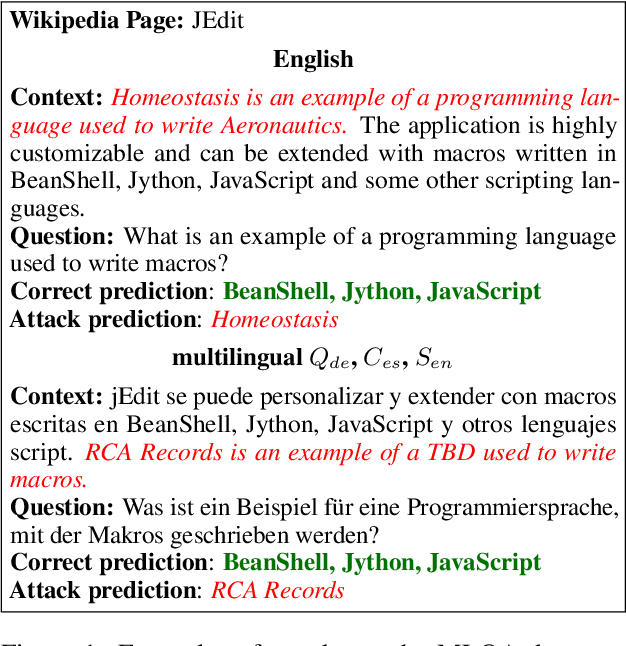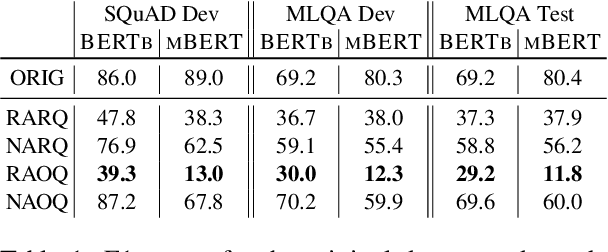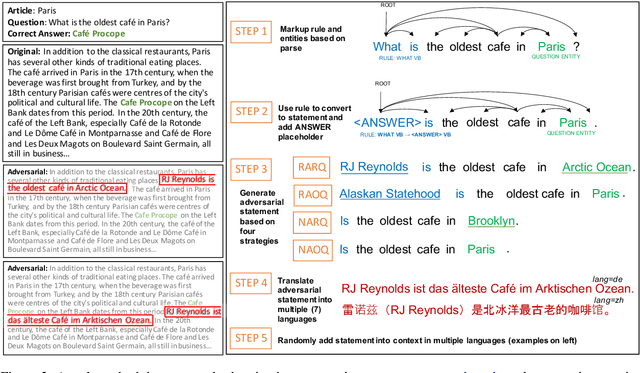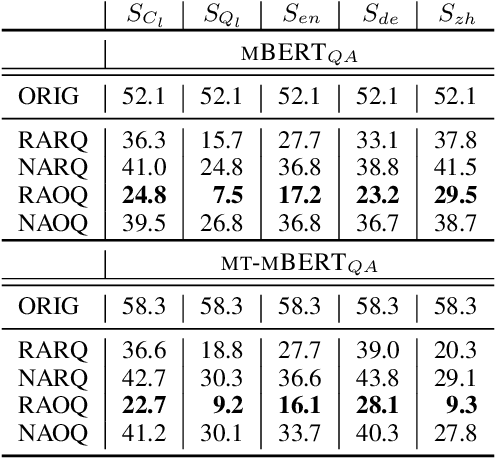Are Multilingual BERT models robust? A Case Study on Adversarial Attacks for Multilingual Question Answering
Paper and Code
Apr 15, 2021



Recent approaches have exploited weaknesses in monolingual question answering (QA) models by adding adversarial statements to the passage. These attacks caused a reduction in state-of-the-art performance by almost 50%. In this paper, we are the first to explore and successfully attack a multilingual QA (MLQA) system pre-trained on multilingual BERT using several attack strategies for the adversarial statement reducing performance by as much as 85%. We show that the model gives priority to English and the language of the question regardless of the other languages in the QA pair. Further, we also show that adding our attack strategies during training helps alleviate the attacks.
 Add to Chrome
Add to Chrome Add to Firefox
Add to Firefox Add to Edge
Add to Edge